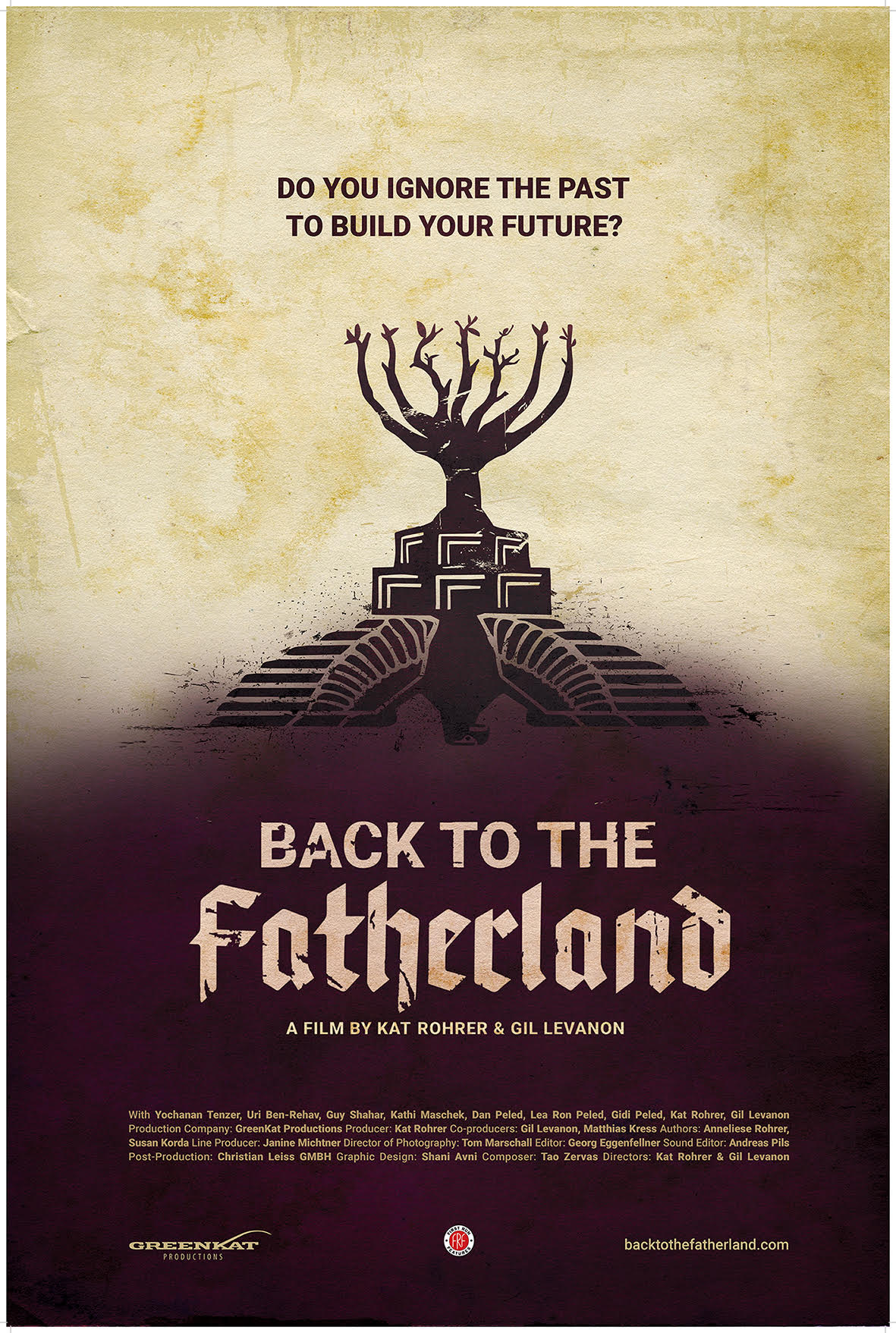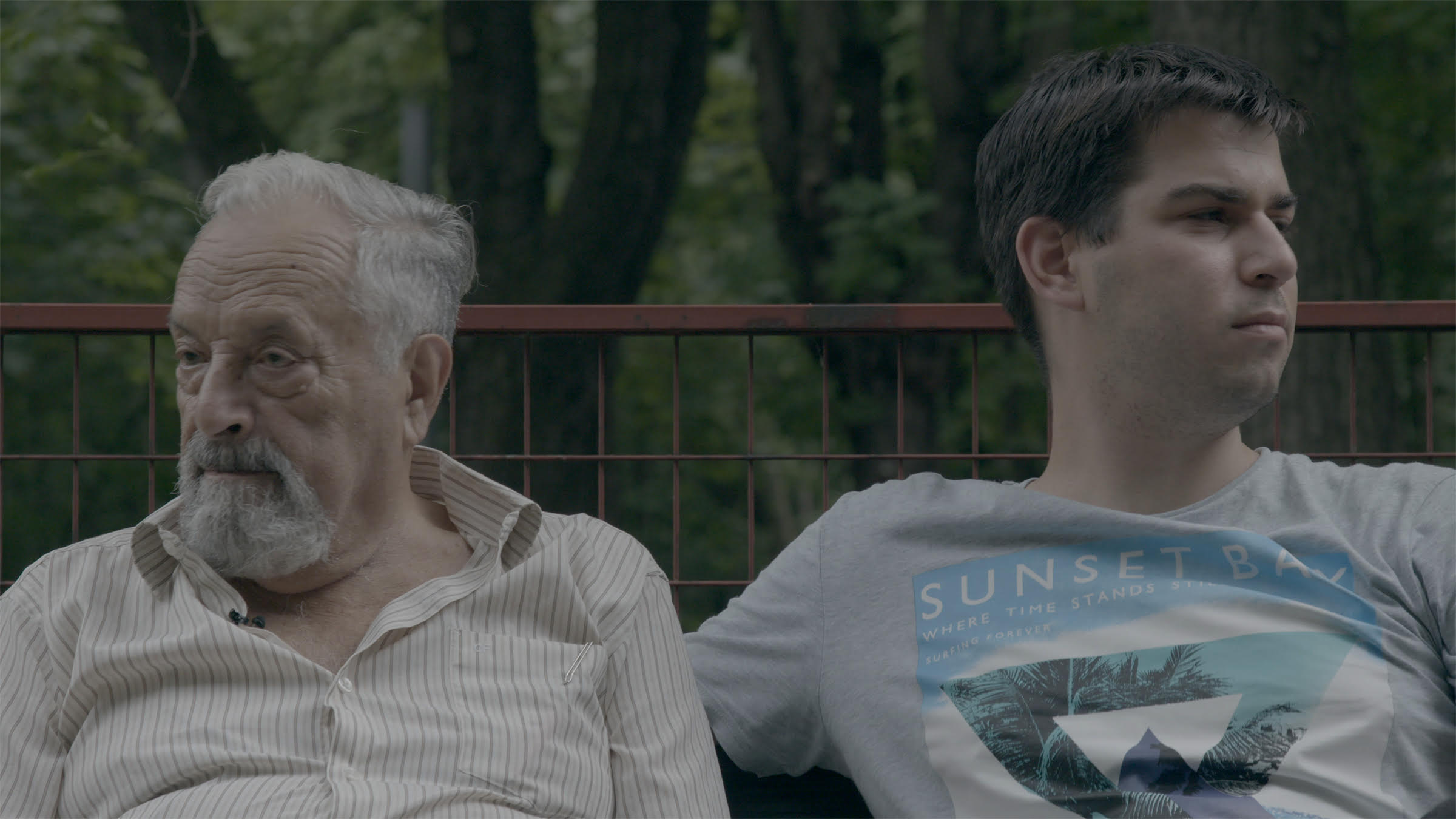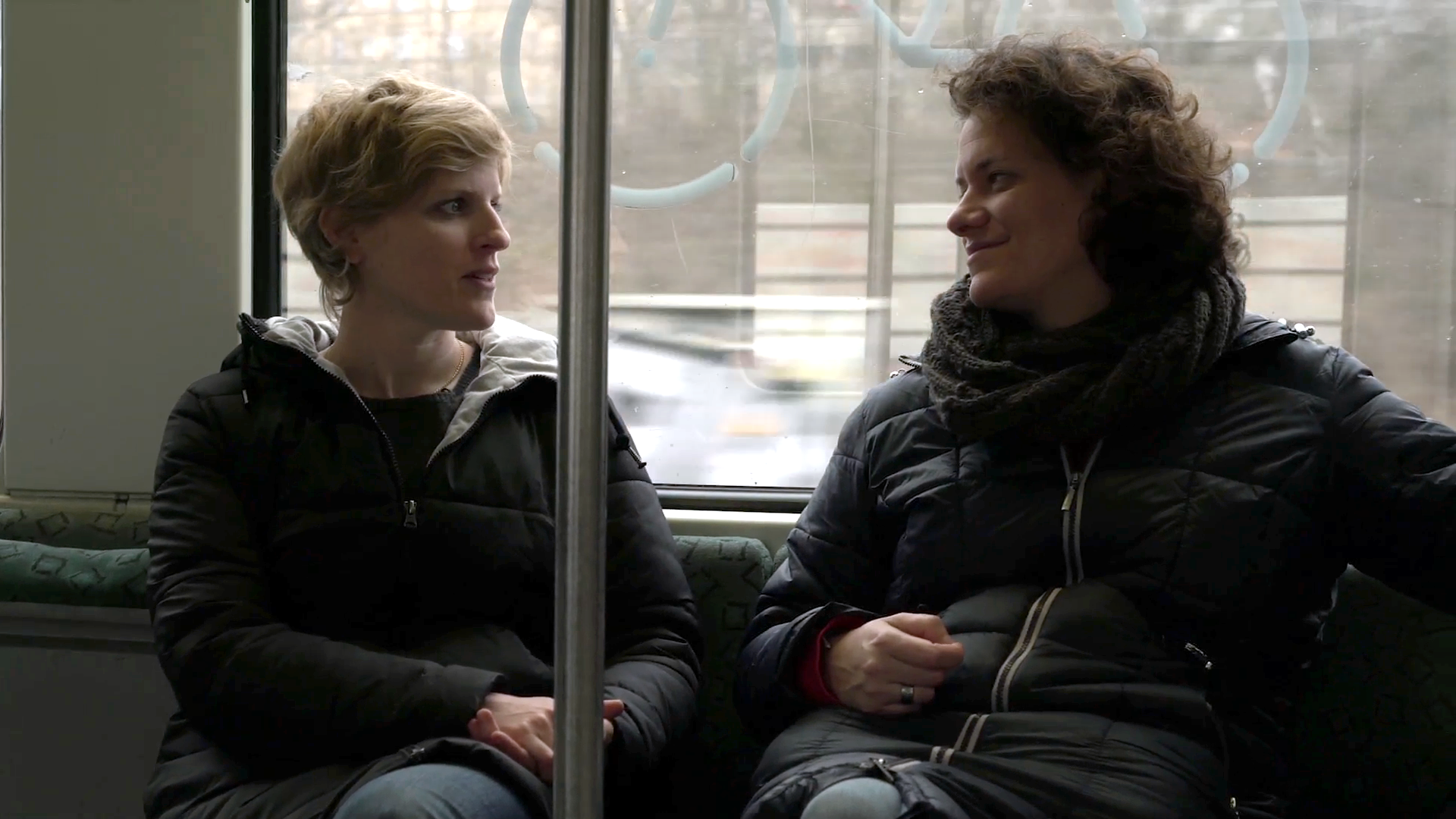
BACK TO THE FATHERLAND looks at young people leaving (or who already left) their home country of Israel to seek opportunities in Germany and Austria. Having grandparents who lived and were persecuted in these countries decades prior generates a variety of emotions among the families whose stories are shared in this documentary.
Filmmakers Gil Levanon, granddaughter of a Holocaust survivor, and Kat Rohrer, an Austrian whose grandfather was a Nazi soldier, struck up a friendship in New York while attending college a decade ago. Noticing a huge population of secular Israelis moving to Germany and Austria prompted the two to seek out other grandchildren of Holocaust survivors who had moved to those countries. Gil and Kat sought to learn how those grandparents reacted.

Peering into the lives of third generation Holocaust survivors and the grandparents who harbor strong feelings about Germany and Austria, the film successfully exposes just how deeply impactful the Holocaust was, and still is, on Jewish families. Even though the film seemingly pieces together its narrative by idea, it bounces among separate families creating a less than fluid story-telling mechanism. But what strikes a chord is the consistency in the feelings that are exposed.
Since both Gil Levanon and Kat Rohrer appear in the film, it could have been far more effective to tell each family’s story separately, then have the pair discuss their own ideas and experiences and tie everything together by sharing what they learned from talking with the other participants. This could have enabled the film to provide a powerful punch at the end and could have given audiences a stronger sense of impact upon the film’s completion.
While BACK TO THE FATHERLAND does not do that, it still provides plenty of thought-provoking content. In today’s society we hear much discussion about privilege, and while this film never mentions the word, listening to the grandchildren of Holocaust survivors discuss their internal conflicts really drives home the point of just how privileged I am. I’ve never been haunted by someone else’s past, been persecuted for my beliefs, or have had to contemplate the detrimental effects to my personal safety if political tides in Europe swing too far to the right. Listening to Guy, who lives with his girlfriend Kathi in Austria, discuss his fears of what could happen to him if the country shifts further to the right politically demonstrates just how internalized past trauma upon his family has become for him. While his grandfather, Uri, supports his grandson’s life choices because he understands the younger generation’s desire to leave restrictive Israel for more opportunities, his eyes convey his strong feelings about the region to which Guy has made his home. He shares stories that provide glimpses into the discrimination and mistreatment he experienced in Austria, and Guy knows that Uri could never return there to live. Both he and Dan, a man from Israel living in Berlin, seem scarred from events that didn’t happen personally to them.

The film seems to demonstrate that while children are not responsible for their families’ pasts, they are certainly impacted by them, for generations. Whether the survivors talk about their experiences all the time, or never talk about them, it appears that the scars are passed down to their children and their children’s children. The filmmakers hope this story of exile and homeland resonates with audiences amidst the current and constantly evolving global world. I think there’s some interesting content here, but it’s a little disjointed.
Barbarella
aka Barbara Kennedy

